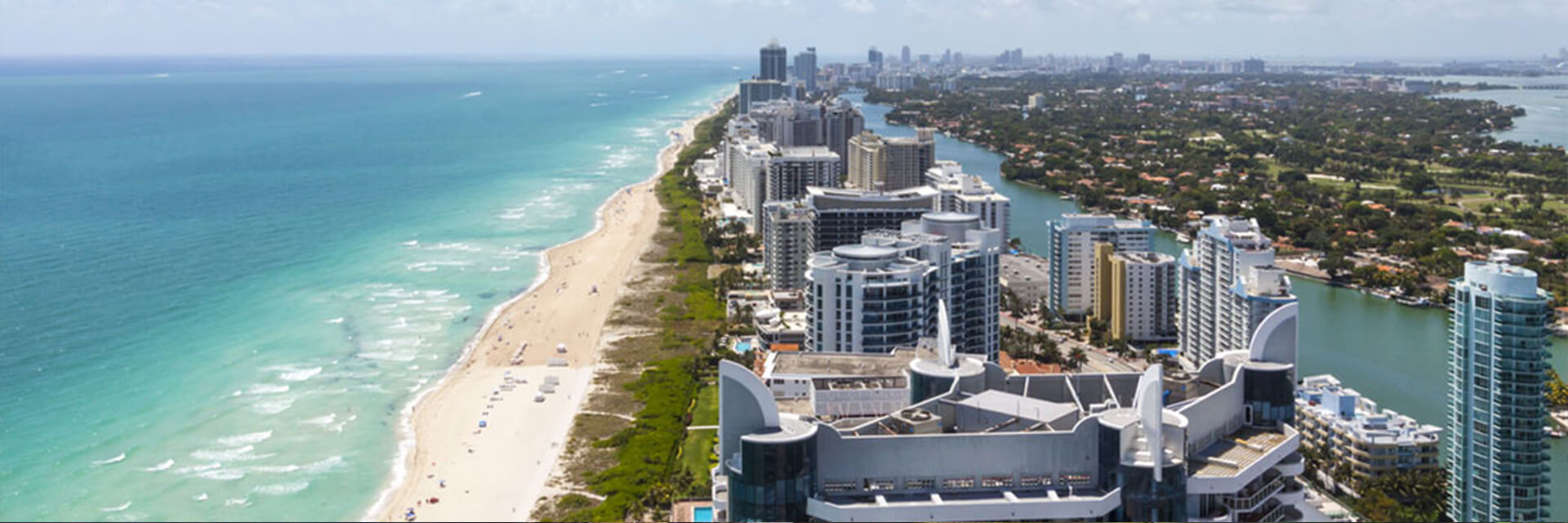
What Are the Long-Term Implications of Short-Term Volatility for South Florida Real Estate?
- Published
- May 4, 2020
- Topics
- Share
On Wednesday, April 22, EisnerAmper Real Estate Practice Co-Leader Lisa Knee and Florida Tax Partner Steve Kreinik hosted a roundtable discussion with several real estate principals and executives that focused on the South Florida market. This highly curated group of clients discussed challenges and solutions related to COVID-19. The discussion mirrored what we’ve heard from developers, investors and property managers in other geographic markets, with some concerns emerging as more Florida-specific. Not surprisingly, a theme emerged of short-term uncertainty across the board, forcing businesses to be responsive yet cautious not to make fundamental changes to their business philosophies.
The overwhelming issue landlords face nationally is a reduction in rental revenue. A critical mass of tenants—both commercial and residential—is asking for concessions or other accommodations for April, even when they have an ability to pay. This differs by segment, with most office and industrial tenants paying; retail has less of an ability to pay. Operators have arrived at creative solutions, such as agreeing to 90 days of half-rent deferral with the remainder to be amortized over the rest of the lease. Another roundtable member noted that while non-payment of rent is legally a breach of contract, they are making case-by-case decisions based on the relationship with the tenant. In some cases, non-payment of rent presents an opportunity to cull problematic tenants from the roll. Everyone expects more tenants to request accommodations or deferrals for May, which is a major concern.
There was some diversity of opinion with respect to the Paycheck Protection Program (“PPP”). PPP recipients may use up to 25% of loan proceeds to cover rent and other operational expenses in order to comply with forgiveness requirements. Some actively encouraged their tenants to apply, while others took a hands-off approach. The consensus was that the smallest companies had the least success in applying for the PPP, because they tended not to have strong relationships with commercial bankers. This was especially true if they went through a larger bank. Community banks have been more active lenders to smaller businesses.
From an investment standpoint, the participants note that there is a lot more liquidity to make investments, unlike at the start of the Great Recession. The group believes deals will start to happen when foreclosures take place, after the current wave of mortgage modifications and refinancing. HUD has pushed banks to tack deferred mortgage payments to the end of the loan term, rather than require full payment at the end of the forbearance period. Borrowers accessing the insurance or CMBS markets are more vulnerable, with fewer concessions available. Valuations are expected to fall by approximately 20%.
Construction has mostly continued, with Miami-Dade County Mayor Carlos Gimenez being very supportive of keeping the industry going. Outside of South Florida, developers have seen halted projects in Orlando and other locales where online permitting is cumbersome or not even possible. Generally, projects in the permitting phase are stalled while those in progress continue.
The controversy regarding business interruption insurance is top of mind for some landlords, but business owners must run a robust cost/benefit analysis of applying and then determine whether they’re willing to have a claim on their record.
Some believe this crisis also has the potential to accelerate the ongoing trend of northerners moving to Florida, on the heels of the increase in demand for housing spurred by the 2018 tax law. One factor working against this trend is the cost of living relative to Florida wages, which favors other regions such as the Mid-Atlantic.
Contact EisnerAmper
If you have any questions, we'd like to hear from you.










